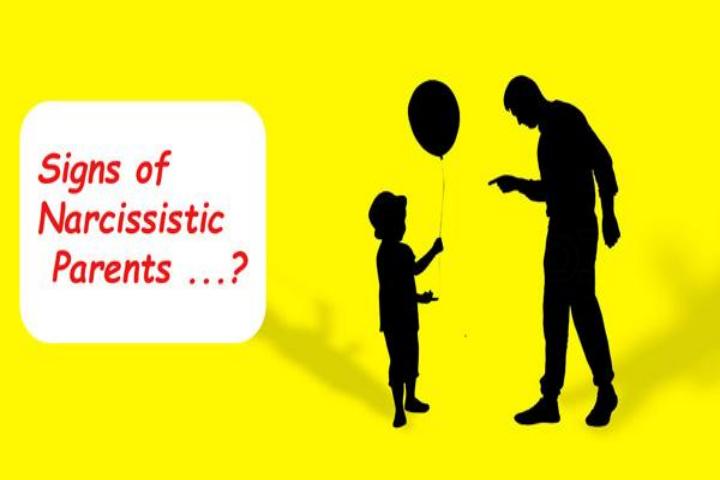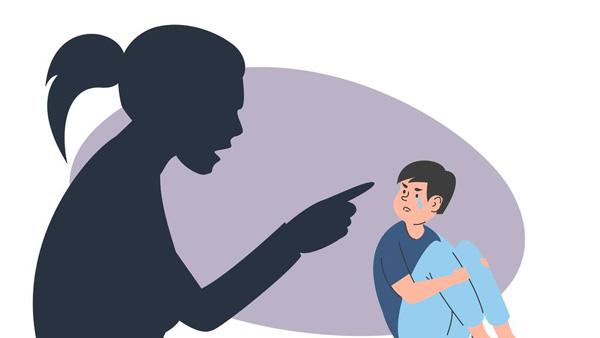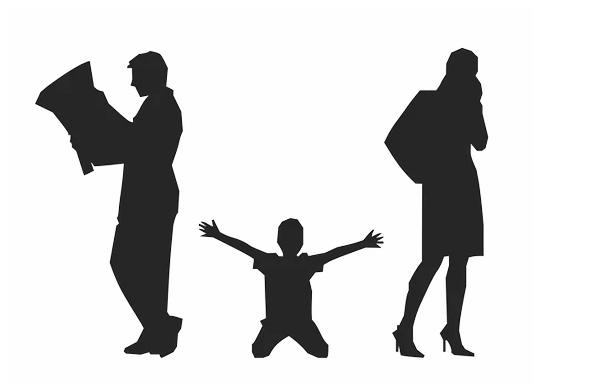Kids learn what they experience. And it’s the parents who are responsible for making their kids successful as well as failing in life. The worst kind of parents is Narcissistic ones, as they beat their kid’s thoughts and steal their identity. So, if you are such a kid looking to find narcissistic parents signs and learning how to deal with them, you are at the right place!
What is a narcissistic condition, and how it develops?
“Narcissistic Personality Disorder (NPD) is another name for a narcissistic condition, which is a mental health problem characterized by an exaggerated sense of self-importance over a long period of time, an insatiable need for admiration, and a complete lack of empathy towards others.”



Some factors can contribute to Narcissism;
- Genetics
- Environment
- Psychological influences.
For instance, in childhood, excessive praise or neglect by parents can favor the development of narcissism. Likewise, if a person has low self-esteem, then they may use loneliness and rudeness to defend himself against bullying and the harsh behavior of friends and family, which in the end, leads to narcissism.
Additionally, cultural factors such as societies that value achievement and the role of social media play a role in making these characteristics worse. In contrast, other factors like experiencing trauma or having significant accomplishments may only add fuel to the fire when it comes to reinforcing narcissist behavior. Ultimately, dealing with narcissism mainly involves therapy and encouraging healthy relationships.
Signs of narcissistic parents
Parents want the best for their kids, and sometimes they can be a bit possessive, which can be understanding. However, some narcissists, when becoming parents, can torture their children in millions of ways and leave their lives filled with loneliness and feelings of being unloved. So, if you feel the same and want to know if your parents are really narcissistic or not, there are some signs of narcissistic parents.



Conditional love
When you look at children raised by narcissistic parents, it is apparent that empathy does not exist within such parents’ dictionaries regarding their offspring’s emotions and experiences since they consider them immaterial. Plus, they use love as a reward when you fulfill their wishes, but it doesn’t last long.
Expectations on special treatment
Narcissistic parents believe that they should receive special treatment, even becoming aggressive or bitter. Such kind of entitlement extends to expectations from their kids, who must respect back without getting any love.
Manipulative behavior
Control is one of the signs of what keeps these types of narcissistic parents, especially mothers, involved in their children’s lives; as soon as they feel they no longer control their children, they will employ manipulation tactics such as guilt trips, emotional blackmail, and so on just to regain her control.
Gaslighting
Gaslighting is one of the signs when narcissistic parents do not accept their children’s experiences, twist the truth, or modify facts to gain control and power, confusing their children so that they are unable to trust their own memories and perceptions about things.
Lack of boundaries
There is no respect for your boundaries. They may invade into your privacy or independence.
Overly critical or judgmental
Narcissistic parents can be very judgmental towards their kids pointing out the errors/mistakes instead of appreciating their successes.
Arrogance
They may have an inflated sense of self-importance, accomplishments, and abilities making them exaggerate their achievements.
Get angry over jokes
Narcissistic parents find it hard to take criticism since they are too sensitive, which triggers anger, defensiveness, or aggression. They perceive feedback as personal attacks, so this can even lead to verbal abuse or emotional withdrawal from them.
Control in every choice of life
Many narcissistic parents try to control their children’s lives, including career choices and relationships, under the pretense that “they know what’s best.”
Never admit their mistake
Most of these kinds of parents never admit when wrong. In addition, they might blame others for anything that goes wrong in life, ignore apologies as well as deny any form of responsibility. Children in such families are usually frustrated due to the absence of liability, leaving behind toxic environments that only foster powerlessness among victims.
Inconsistent behavior
They can switch between being obsessively attentive for a time and entirely neglectful at other times, causing confusion and instability in the child’s mind.
Exploitative behavior
Such mothers often misuse their children for selfish reasons ranging from social status, financial support, or emotional satisfaction. Children manipulated by narcissistic mothers will always feel used and unloved.
Favoritism
In a narcissistic family, it is common for one child to be favored over the others, which creates conflicts and competition among siblings. They may have one child as the scapegoat while putting another on a pedestal, encouraging competitiveness and bitterness. Such partiality can have long-lasting effects on relations between siblings and an individual’s self-esteem.
Beating and abusing
Some narcissistic parents will show beating and abuse signs, Parents, especially in third-world countries ( like India, Pakistan, Bangladesh, Africa, etc. ), will abuse their kids verbally and even beat them regularly.
How does narcissist parenting affect kids?
Children’s emotional, psychological, or social development can be greatly affected by narcissistic parenting. Below are some typical outcomes:



Emotional and Psychological Issues. These include chronic emotions like anxiety, depression, post-traumatic stress disorder (PTSD). And others that are related to constant criticism, manipulation, lack of emotional support, etc.
Constant Anxiety. Narcissistic mothers have unrealistic expectations when it comes to their children. Therefore, they demand too much from them. This might create tension due to the pressure of reaching these standards, thus causing anxiety problems.
Low Self-Respect. Children whose needs are not prioritized by their own parents tend to feel devalued and unimportant thus leading to low self-esteem as well as self-worth, which can be shown as a lack of decision-making skills, especially at work.
Lack of Boundaries. This results from ignoring children’s boundaries hence no personal space and privacy, due to which a child does not learn how to stand up for himself/herself and set appropriate boundaries or personal space limits. All this, in the end, leads to failed relationships.
Emotional Neglect. Parents who are like this are often less available and emotionally distracted by their own feelings so their neglectful nature results in children feeling disregarded or abandoned emotionally.
Can’t express their thoughts. These fathers employ different techniques to maintain control over their children regarding what views they should express and what opinions should remain silent. Hence, this practice leads young people to the feeling of being stuck without the capacity for expressing thoughts out loud.
Fear of Failure. A child living under such circumstances is likely to develop an intense dread of failure due to the pressure coming from his/her parent. So, children become scared and don’t take necessary risks in life, resulting in failures.
Fail Relationships. Kids whose parents are narcissistic find it hard to establish and maintain normal friendships. Trusting others might be difficult for them; they may have a fear of abandonment or may even copycat the behaviors of narcissists.
Seeking praise. Such children develop codependent tendencies where they seek recognition from other individuals as a way to make up for the absence of their parent’s support or affirmation.
Identity Issues. By imposing their identity on their children, these parents hinder the development of selfhood in the child leading to a sense of not knowing who they really are.
How does a child deal with a narcissistic mother?
Dealing with Narcissistic parents can be more than escaping the safest jail in the world. As you are dependent and under 18, there is literally nowhere (except foster parents and orphanages ).
So, if your parents are not abusive, like beating, then you can live with them until you become independent, like 16 or so.
Here are some tips and tricks to deal with a narcissistic mother



- Start loving yourself, no matter what the situation is. This practice will help you heal your heart and develop happy feelings. As a result, you will start making your own decisions and develop trustworthy relationships.
- Stand up for yourself where the parents are wrong. But not by anger or a high voice. The best way to deal with narcissistic behavior is to be silent and aware of your parents with reason & love.
- Third step is learn and grow. Understanding the nature of narcissistic behavior can help the child emotionally separate himself or herself from this negativity. In that light, understanding that it is more about her issues than about the child’s shortcomings can ease feelings of self-blame and inadequateness.
- Mindfulness activities. Among ways to achieve emotional balance in such circumstances include mindfulness, relaxation techniques, and engaging in personal interests.
- Friendly associations. Children with narcissistic mothers have low self-worth. Therefore, they should be encouraged to participate in activities that boost confidence and personal achievements. Surrounding oneself with friends who are supportive and pursuing hobbies that bring happiness can help offset the negative effects of a narcissistic parent.
- Expectations lead to disappointment. Nobody changes overnight, so stop expecting overnight changes from your narcissistic parents. This will help you be more ready for every disappointment. You should focus on your life aims and how to become a successful person.
- The most important thing is seeking support from other people. This may involve getting in touch with dependable adults like relatives, teachers, or therapists who could provide necessary direction and affirmation.
Does using Parental Controls make you a narcissistic parent?
Yes and No. Parental controls are a tool just like a knife, which can be used to cut an Apple or to murder someone. Similarly, parental control can help loving parents keep their children safe from bullies, predators, and addictions. But parental control can also be used as a knife for narcissistic parents to even more depress their kids.
So, first of all, if you are a narcissistic parent, it’s a request to stop being one because your kids are already hating you and will leave you soon. Every parent must follow one simple rule “To think what’s good for their kids, not for themselves.”
Every parent can use parental controls like FlashGet kids to save their child from addiction to mobile phones. It can help them stop sharing their nudes, keep track of their location, and much more.
FAQs
Will a narcissist apologize?
No, narcissism impairs their empathy and self-awareness so that they cannot genuinely apologize; most times, if they do, it’s either insincere, manipulative or to protect themselves from being accountable and avoid the consequences of their actions.
What words can destroy a narcissist?
However, caution must be exercised when openly challenging a narcissist about his/her fundamental views. Statements such as “Your actions hurt people, and you never acknowledge it” might make a narc feel uncomfortable and defensive but won’t necessarily result in change.
What will a narcissist never do?
However, caution must be exercised when openly challenging a narcissist about his/her fundamental views. Statements such as “Your actions hurt people, and you never acknowledge it” might make a narc feel uncomfortable and defensive but won’t necessarily result in change.
Do narcissistic mothers cry?
Yes, narcissistic mothers can cry, and they do cry a lot, but not with pain or sincerity but for manipulation. Crying takes the child on an empathy and guilt trip, which makes the mothers control their kids.

